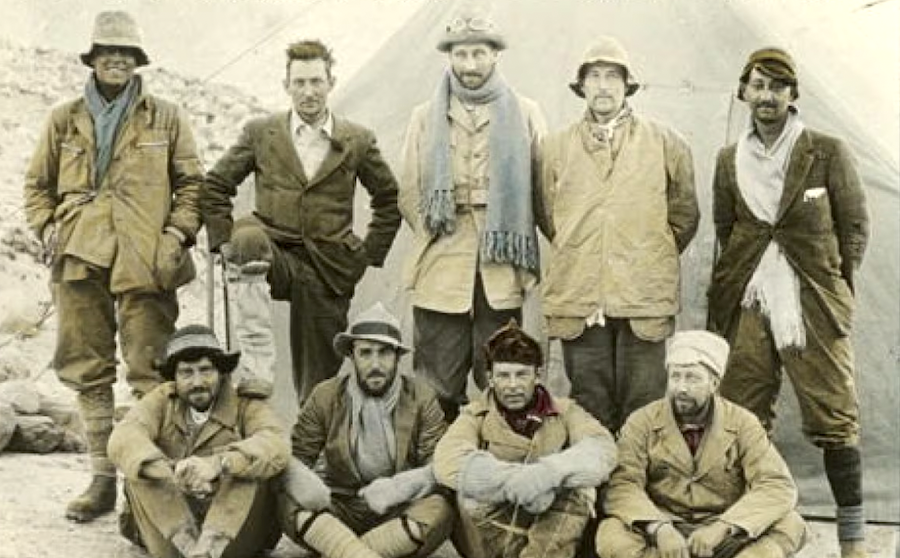Wade Davis on the British Desire to Conquer the “Third Pole,” Mount Everest
In Conversation with Razia Iqbal on Baillie Gifford’s Read Smart Podcast
The latest episode of the Read Smart podcast features host Razia Iqbal speaking to Wade Davis, 2012 winner of The Baillie Gifford Prize, about Into the Silence, a book delving into the psychological aftermath of the First World War and mountaineer George Mallory’s fatal expedition to Mount Everest. The Guardian has praised Davis’ work, highlighting how the “tried and tested narrative routes are guaranteed to keep the reader roped closely to the page.” Davis and Iqbal discuss not only the character of Mallory, but crucially why he kept climbing on that fateful day.
The podcast is generously supported by the Blavatnik Family Foundation. Follow @BGPrize on Instagram, Facebook, Twitter, TikTok and YouTube.
From the episode:
*
On the imperial context of the Everest expeditions
Wade Davis: Everest became almost like a Rorschach test of the decline of the British Empire. You know, the effort began before the Great War, when an empire of explorers had famously lost the race for the north and south poles to others.
And so Everest looming over the Raj, within the clear domain of the British, became kind of a third pole. It became almost a gesture of imperial redemption. And then in the wake of the war, it became, in a sense, a symbol of regeneration for an entire nation, bled white by the conflict.
But the expeditions that came later in the thirties were just unmitigated failures. And they became, in a sense, symbols of Britain’s impotence on the eve of Hitler’s war. And then when finally in 1953, when the mountain was climbed by Sir John Hunt’s team, it was powerfully symbolic that those who reached the top were not from Oxbridge, as Arthur Hinks had always anticipated, but rather a humble beekeeper from the far reaches of Empire and the Sherpa, Tenzing Norgay. And critically, when Edmund Hillary and Tenzing Norgay refused to say who got to the top first, that single gesture kind of inverted the whole idea of what it meant to be a colony, what it meant to be colonized.
*
On the importance of the Great War to the mountaineers
Wade Davis: One thing I set out to show was that the Great War really was consequential. Both the lives of these men, but also in the spirit with which they went to the mountain. All but six of them had seen action in the war, either as combatants or as medics.
I mean, they had been wounded several times. You know, John Noel spent the whole war shell-shocked in an asylum. Three or four of them were surgeons at the casualty clearing stations. I mean, Howard Somerville walked out the morning of the Somme, having been told that he might expect a thousand casualties in a week.
And he was one of two surgeons looking out at five acres of bleeding, dying boys and he had to decide who would live and who would die.
*
On the spiritual importance of Everest
Wade Davis: The truth is that it’s not the mountain that’s sacred, but the environs of the mountain, because this is one of the hidden valleys of Campbell Loon, one of the sanctuaries, you know, carved into space at the dawn of time by Guru Rinpoche. So, you know, it was a metaphysical landscape, also with portals to the divine. So they were they were walking the whole time, unbeknown to them in a landscape of mystic space.


















